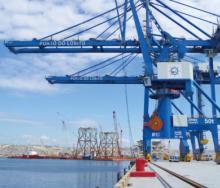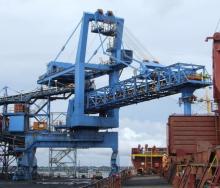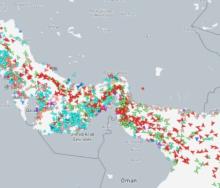Driven by customer demands in the digital era, the future will deliver efficiencies that the logistics industry has never seen before.
According to Stephen Morris, acting director-general of the International Federation of Freight Forwarders Associations (Fiata), technology is bringing significant change even to an industry as set in its ways as logistics.
Paul Cheetham, MD of Freitan Logistics and a speaker at the upcoming Fiata World Congress – set to take place in Cape Town in October – says there are three technologies that are critical to disruption, specifically in logistics: “The first is artificial intelligence (AI), the second is self-driving vehicles and the third is drones.”
The combination of AI and self-driving vehicles is not limited to road vehicles and is already being seen in Rotterdam in the Netherlands, he adds. “Self-navigating barges are already moving goods on rivers. Elsewhere, self-driving warehouse equipment is fetching and carrying parcels.”
He points out that this will clearly have an effect on labour in the industry because the same amount of human intervention won’t be needed – and ultimately, if developed correctly, this technology will be far more accurate and less prone to human error.
“This means that there will be a shift – true in many industries – in the way human capital will be deployed.”
Cheetham says that drones are currently limited in terms of their capability and application, and can fly only short distances with light weights – but not for much longer. “That’s changing. In the next five to 10 years, we’ll see drone deliveries becoming far more commonplace.”
Another growing trend, he says, is asset sharing over asset owning. This has become commonplace in many transport-provider sectors, including shipping and air transport. This allows for greater agility among smaller logistics players, streamlined pick-up and delivery, as well as lower costs, supporting the broader sharing economy.
According to a report by DHL titled Sharing Economy Logistics, 41% of US consumers have used programmes offering same-day, expedited or on-demand delivery services. It becomes clear that the infrastructure to support this is growing to sustain user demand.
“The logistics industry of today is a very different creature from the logistics industry of tomorrow,” says Morris. “The combination of smaller, more entrepreneurial players in need of solutions, and larger, established entities able to make significant investments in advanced technology, will support this disruption and deliver a future that we’re all only beginning to imagine.”













